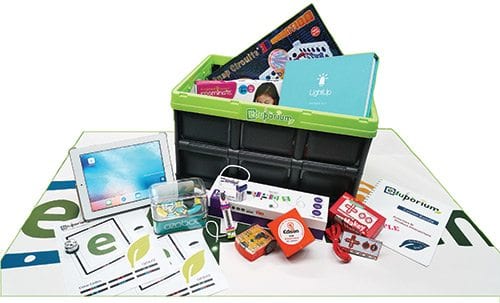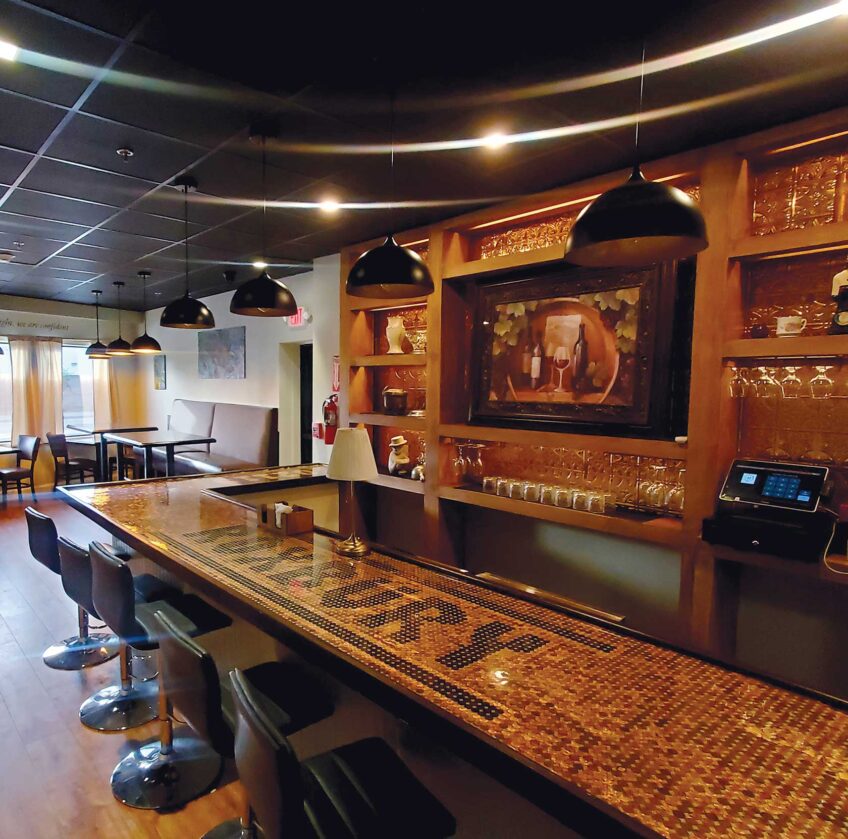
Rick Fredkin is something of a legend in the Boston tech community. Working with computers his whole life, Fredkin entered the industry professionally at age 12. Since then he’s acquired over 20 years of experience, working everywhere from Fortune 500 companies to tech startups. His latest venture, Eduporium, sells K-12 educational technology to schools, parents and students.
For Fredkin, it’s a question of quality. Computers, tablets and the like are pervasive in American society, but not always to our benefit. “A lot of technology allows us to consume without adding value,” says Fredkin. “Our mission is to get beneficial technology into the hands of students, so they can discover new subjects and learn in a new way.”

“A lot of technology allows us to consume without adding value. Our mission is to get beneficial technology into the hands of students, so they can discover new subjects and learn in a new way. … Life is about continually learning and growing. Today, technology is at the center of that.” — Rick Fredkin
One of Eduporium’s most popular products is the Raspberry Pi, a credit-card sized single-board computer that plugs into a number of other devices and allows students to learn programming skills. Eduporium offers several products that work with the Raspberry Pi, one of which teaches children to build and play their own video game and another that shows them how to track and monitor the weather anywhere in the world. These products can be used by bright minds as young as five.
Education isn’t about blackboards and blocks anymore. According to a 2013 nationwide survey taken by PBS LearningMedia, 74 percent of educators said technology is key to helping them expand classroom content and 73 percent said it helps teachers adapt to different learning styles. The Eduporium website contains a tab called “21st Century Skills.” Here schools and direct consumers can explore products focused on robotics, circuitry, coding and video. Eduporium also sell pre-made and make-your-own kits for things like wearable tech and drones. Among the offerings is a 3D printer recommended for “a variety of fun and creative projects.” A far cry from scissors and glue, the classroom truly is a brave new world.
Like most new ventures, Eduporium emerged from an opportunity in the market. Lots of companies were creating technology for the educational sphere and lots of venture investments were going into the industry, but no one was supplying that equipment directly to schools. That’s where Fredkin came in, creating an easier, more streamlined process for institutions and families to purchase equipment. He’s found that breaking into the school system is complicated but worthwhile. “Education is a challenging field,” he says. “It’s slow moving and there are high barriers. But we’re providing a value to these people and that’s rewarding.”
Fredkin has two children — Marina, 4, and Robert, 6 — and jokes that both have been using an iPad since birth. “They clamor to come into the office and tell us what they think,” he says. Eduporium has a testing room where they run products by kids of all ages to vet their viability in the marketplace. Fredkin says it’s easy to tell when something doesn’t fly; the elementary testers don’t mince words, or facial expressions. In his view, technology fosters exploration and therefore learning. Fredkin encouraged young Robert to switch from a tablet to a laptop for this reason: “He has to learn more in order to use it.” Now the 6-year-old is doing programming that many adults couldn’t fathom.
The industry has expanded rapidly over a short time. Fredkin says this wave of technological products has emerged only within the last five years. A Boston native, Fredkin had no doubt that this was the place to launch Eduporium. On top of the city’s sprawling educational infrastructure, Boston has a reputation for being startup-friendly. “There are networking events in technology almost every day,” says Fredkin. “It’s a much larger ecosystem and a present community.”
Ironically, Fredkin didn’t spend much time in school himself. He left high school in ninth grade to pursue career opportunities and earned his diploma nontraditionally; much of his learning came through computers. At the age of 2 he began tinkering with his father’s IBM 286 and learned to navigate the system as he was learning to walk. “I had all this stuff around me and I would play with it,” he recalls. “By the time I was 12 I had enough experience to use my skills professionally.” It’s this kind of inventive play that Fredkin now fosters through Eduporium — except 30 years later, kids are learning with robots and circuitry rather than rudimentary computers.
Eduporium is doing what many businesses and people are afraid to do: dive headfirst into the future. Rather than shying away from technology in fear of over-saturation and shortened attention spans, Eduporium harnesses it for the betterment of a generation. Furthermore, it’s plunging into a dicey market where schools have tight budgets and specific needs. “Life is about continually learning and growing,” Fredkin says. “Today, technology is at the center of that.”







